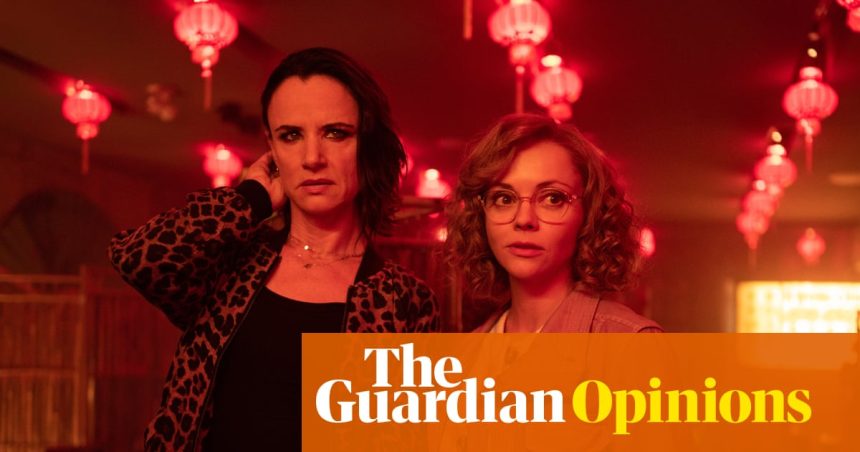It’s an all-too-familiar feeling. The second series of your favourite TV show has just begun streaming and your mind is full of hopeful expectation. Season one ended sooo perfectly: future plotlines were teased tantalisingly and a main character had – cliffhanger! – been offed (or had they?) In the months since the finale, you were perusing Reddit threads with other hardcores to find some Easter egg clues illuminating what would happen next.
And then season two’s premiere is a damp squib. It feels like the entire writers’ room has been fired and replaced by artificial intelligence. Cut to the second episode, and your favourite cast member has done something that you and Reddit user Fishy2345 agree is totally out of character. By episode five, it’s clear that the showrunners have had collective amnesia around the storylines aggressively signposted in season one. And by the disappointing finale, you silently wish that the show had just been cancelled.
Wishing for cancellation can only be retrospective; most fans protest when their favourite shows are canned before they can get off the ground. Take Kaos, a delightfully satirical take on Greek mythology featuring Jeff Goldblum, which was binned by Netflix due to low viewing figures. But perhaps these fans will rest better with the knowledge that their enjoyment of the series won’t have been muddied by a sophomore slump.
Looking back at the horror-mystery show Yellowjackets, I now wish it had been a limited series. Season one had a creatively abundant premise, and its 10 episodes were note-perfect. In 1996, a plane carrying an all-girl high school football team crashes in the middle of nowhere. Top-notch cast members (including Juliette Lewis, Lauren Ambrose and Sophie Thatcher) portrayed the team then and now. There were multiple award nominations, and the showrunners proudly announced there would be five seasons to tell the story in necessary detail. But last week, it was announced that it would end with season four. And as a fan, I let out a sigh of relief.
The show has made narrative choices that have undermined its heart. Rather than leading with the girls’ return home and watching how they deal with their horrific new secrets, we were taken in directions that bloated the original premise. That included the show’s tiring habit of bringing in and focusing on new characters (such as Shauna’s two-dimensional daughter Callie) who did nothing for the broader story. It’s frustrating, and as a viewer, it is depressing to see your favourite show morph slowly into a hate-watch.
But it’s not only Yellowjackets. Shows such as Emily in Paris, House of the Dragon, Squid Game and Stranger Things have lost the shock of the new, and fallen headfirst into expected or comfortable cliches. Sometimes shows need to quit when they are ahead.
The thing is, there are joys to be had in a limited, “one-and-done” series. From Sharp Objects to I May Destroy You to Adolescence, TV creators know when to stop when the story has naturally reached an endpoint. But the game is over when shows such as Big Little Lies, originally a limited series, come back for more and more with diminishing returns. Hopefully, Adolescence’s producers have thought twice about that rumoured season two.
I wish Yellowjackets could have been a one-and-done series, living rent-free in our imaginations, cliffhangers and all. My favourite TV show of all time has played out like that. My So-Called Life, the perfect 90s teen dramedy, lasted for only one season but was cinematic in its scope: its characters were difficult and contradictory, the cinematography was perfectly autumnal, and the dialogue was untethered from the normal “teen speak written by a 35-year-old” trope. Its final episode was bitterly unresolved, but that is perfectly in keeping with the reality of never having real, definitive answers to the open-ended questions from your teenage years. After 18 perfect episodes (and one dodgy one), I was heartbroken and took to writing season two fan fiction myself to answer some of those questions. It might only live on an old hard drive, but it speaks to how deeply TV shows can chime with us.
after newsletter promotion
If TV creators can remember the sacrosanct relationship between viewers and shows, more programmes can bow out when the time is right.

Leave a Reply